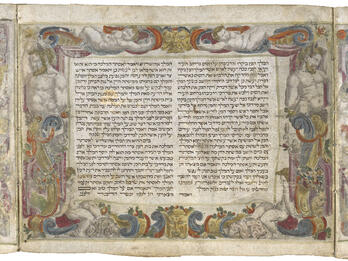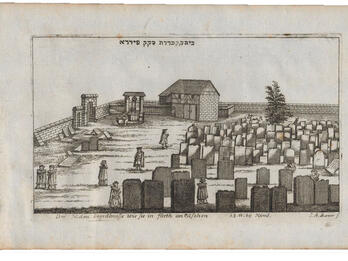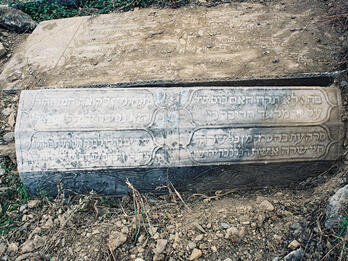Last Will and Testament
Ovadiah Sforno
1549
In the year fifteen hundred and forty-nine, the seventh indiction, the first day of the month of February, during the time of the pontificate of the Holy Father in Christ Our Lord, Lord Paul III, pope by Divine Providence.
Since nothing is more certain than death, and nothing more uncertain than its hour, and given that the Lord Master Servadeo…

Related Guide
Early Modern Italy: Where East and West Meet
Ashkenazim, Sephardim, and Marranos encountered each other in Italian cities, developing community structures that later influenced Jewish communal organization throughout the western world.
Related Guide
Early Modern Egodocuments
The early modern period witnessed a proliferation of Jewish "egodocuments"—first-person texts where authors reveal themselves.
Creator Bio
Ovadiah Sforno
Ovadiah Sforno was born in Cesena, Italy. He later studied philosophy, mathematics, philology, and medicine in Rome, where he also taught Hebrew to the Christian humanist Johannes Reuchlin. Sforno finally settled in Bologna, where he helped revive the Hebrew printing house, reorganize the community, and establish a house of study. Sforno died in Bologna. He is most famed for his commentaries on the Pentateuch, Song of Songs, and Ecclesiastes (Venice, 1567), the last of which was dedicated to King Henri II of France. He avoided mystical and kabbalistic interpretations and paid little attention to philology, geography, or history, but on occasion he employed his medical knowledge to explain commandments. Sforno also composed the philosophical work Or ‘amim (Light of the Peoples; Bologna, 1537), a commentary on Pirke Avot, a translation of Euclid, and other texts that remain in manuscript.
You may also like

Cemetery of the Fürth Jewish Community
Testament (Verona)
Testament (Istanbul)



